Yunupingu’s name will ring through history, says actor Jack Thompson
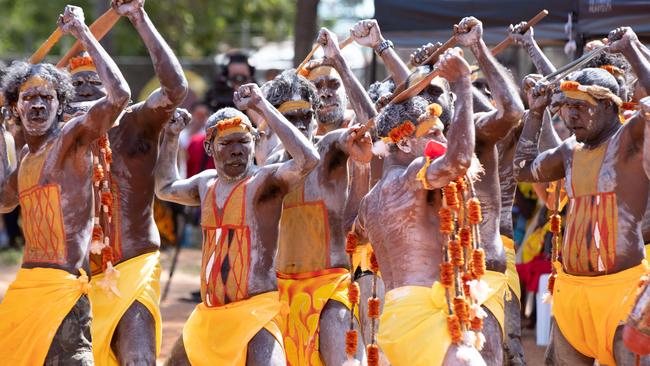
He was born at a time when the world was a different place. It was a Yolngu world and it was in order, as it had been for past millennia.
He was born into a world governed by the seasons, by kinship, fellowship, duty and allegiance. The greatest allegiance then, as it is now, was to the song-cycles, the ancestors, the law of the land and all that is in it.
As his life took shape he would soon become aware of a New World that was forming around him. Cattle men and police men had come upon the Yolngu in the 1920s and 1930s. The missionaries had come in the 1940s and 50s, and by the time Yunupingu was a young man in the 1960s the miners had come.
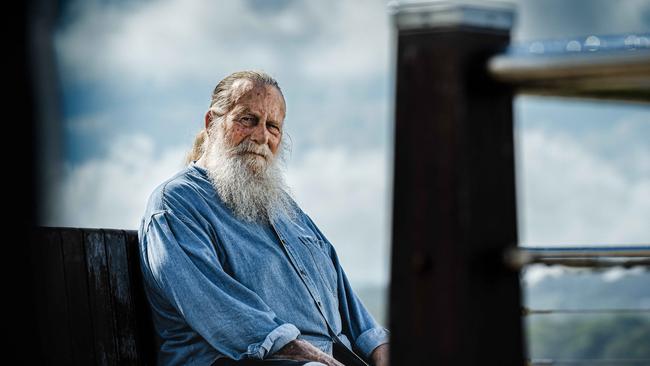
And so Yunupingu was raised in a world where Yolngu people had a “future shock” thrust upon them. For who could believe that a government without agreement would take control of a people’s land and authorise the breaking down of their most sacred places? Who could imagine a government that would seek to control the Yolngu world, including the children of that world, and enable the taking of its bounty and its sacredness for profit?
Who knew that minerals and furnaces and factories were of more value than people? Who could make sense of the force and strength that came in such numbers and with such conviction? And who today can imagine the powerlessness, the helplessness and despair, of men and women and children who watched their sacred world destroyed in front of their eyes, and who saw their elders bereft in the face of another power.
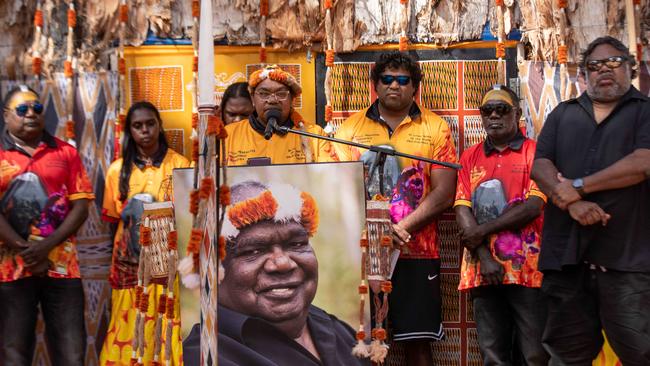
This was the great challenge that Yunupingu faced as a young man as he came of age.
It was Yunupingu’s father Mungurrawuy – a true Warrior and Peacemaker – who we now know spoke quietly into his ears and told him be strong: “Look Up to the Future”.
Despite everything “believe in yourself, believe in the power of the future”.
It was an instruction that he never forgot and never forsake.
The power of these words from his father set him and his family on a pathway that he followed to his final days – to fight hard for his people’s rights, but to make the peace and find the settlement. To find a way forward where Yolngu and Balanda might live in harmony together. Create a life where Yolngu people could be who you are in a modern world; Ceremonial Beings and Economic Beings – people of an ancient past; voyagers to a brilliant future; masters of ancient dance and ceremony; masters of modern technology and method.
Yolngu people first, but always men and women of Australia.
As Yunupingu matured, he was schooled on the ceremonial grounds of the Gumatj people and in time this ceremonial world would become entrusted to him. A keeper of the sacred flame of the Gumatj people he took upon himself a task like no other in Australian history: to master both worlds and in doing so to bring them together in unity.
A pioneer of the Land Rights movement and Indigenous rights more broadly, he spoke for Aboriginal and Torres Strait Islander people when they were voiceless, working with leaders from throughout the country to return Indigenous people to their rightful place.
With Yolngu leaders, he led the revival of the homelands movement in the 1970s, establishing BRAN-BRAN and DUNAYA and of course he at the heart of the Land Rights movement as it emerged throughout Australia. He then chaired the Northern Land Council and led it into the fray of Australian public life for quarter of a century.
Day after day he sought to protect the lands and waters of traditional owners throughout the Northern Territory and Australia. Day after day he returned here to his homeland at Gunyangara which he founded in 1981.
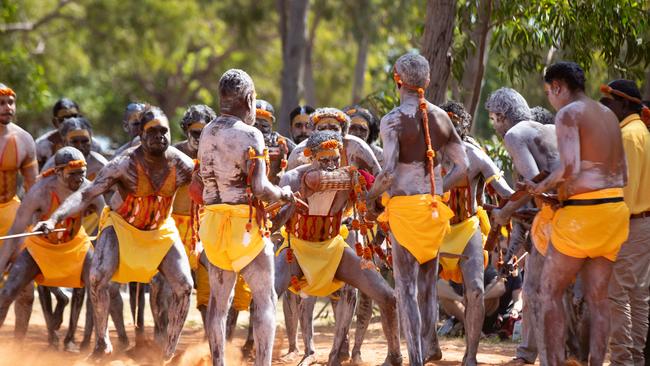
In the 1990s with his brother he formed the Yothu Yindi Foundation and made education the focus of its work. And together the two brothers gifted the nation the Garma Festival. They opened up the true inheritance of this continent to all Australians showcasing the DULANG (art) BUNGUL (dance), MANIKAY (song) and GAKAL (performance) to a national audience. And into that he injected the Politics of the Day because all life is politics – all art is a reflection of politics and people. And of course today Garma leads a national discussion and debate on issues affecting all Australians. Garma is a safe and glorious place. It is the headquarters of the ancestor Ganbulapula and it is a place where opinions and views can be expressed and where the nation comes together for a few days every year.
In 2011, ably assisted by his brothers Djawa and Balupalu, he and his people settled with the mining company Rio Tinto in a moment that healed many wounds and set the Gumatj clan upon a journey that continues to this day.
Off the back of that settlement with his brothers and board members he built a series of businesses on his land through the Gumatj Corporation. These businesses include a cattle station, a timber mill, a nursery and a store. And then, in 2017, he opened the Gumatj-owned Gulkula Bauxite Mine, the first Aboriginal owned and operated mine in the country. Reversing the wrong headed-ness of outsiders exploiting the ancestral lands of Aboriginal people, he set a new example for the future of mining.
At the same time and in the same year he completed the task of controlling his own township here at Gunyangara through a 99 Year Lease that gives certainty and openness to development and a platform for engagement with government.
Using that platform this great man oversaw the establishment of the Dhupuma Barker junior school here in Gunyangara, and set the foundations in place for the Garma Institute. The pathways are now set for high-class education facilities in northeast Arnhem Land, a legacy that is as important as anything that has come before.
And of course late in life, his work not yet done, he oversaw the opening of the Gulkula Space Base and his clan’s partnership with NASA and Equatorial Launch Australia.
He found the respect of all he met through his authority and poise. But it was his determination to do things that needed to be done, and that were right, that spoke to his allies and his opponents alike.
And always he sought constitutional recognition and a voice for the powerless. He understood that to go forward in the nation Aboriginal and Islander people had to be part of the mainframe of the nation. That was the gift he sought in return for his life’s work.
Today, Yunupingu’s name rings out in some of the nation’s most significant events – the Yirrkala Bark Petitions, the Gove Land Rights case, the Land Rights Act, the Barunga Statement, the Native Title Act and the Voice.
But his most important work was always at home, here at Gunyangara and in the homelands. This is where his life was at its’ fullest – as a husband, a father, a grandfather and great grandfather. He is DAL-KARA – A singer and a dancer and a painter. He is GONG-DHULANG – and man of the highest degree, the holder of the sacred knowledge. As a healer and carer for young men taking their first steps into manhood, and as a ceremonial man who stood guard over his kin as they started their journey from this life to the next. A journey he now begins as we stand guard over him.
Today we acknowledge the grief and pain shared by his wives, his brothers and sisters and his children, grandchildren, and great grandchildren. We acknowledge the clan nations that loved him and who lived life with him and around him.
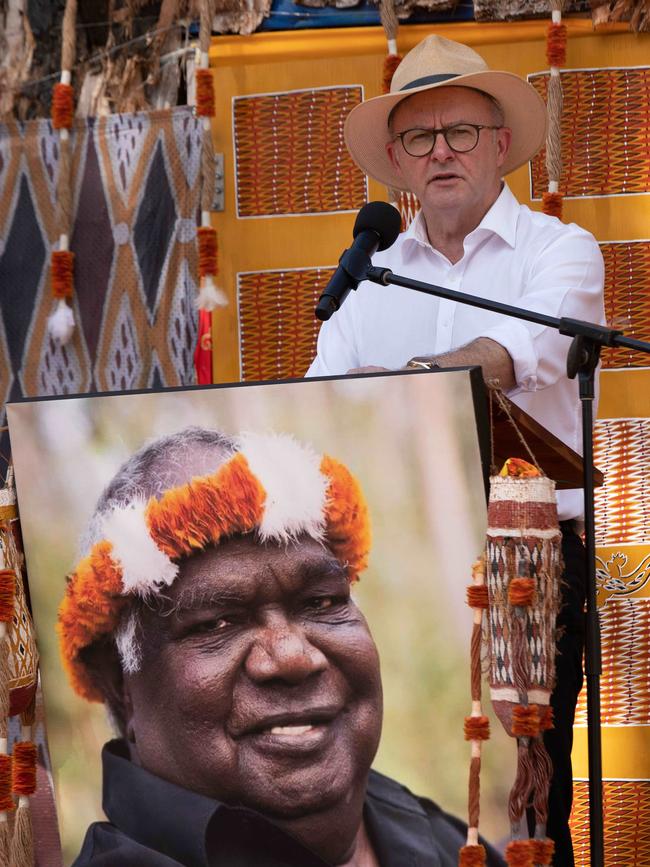
We affirm that the work he did is not over – it has just begun – and that the challenges he faced remain. These are our challenges now.
Yunupingu has started his journey to be reunited with his fathers and his kin. His ancestors await him in the heart of his sacred Gumatj country.
He returns to where he began, on sacred Yolngu country, here in North East Arnhem Land. He is now himself the rhythm of life, the balance of the land, the movement of the water, the touch of the sacred wind and the power of the ceremonies. He returns now to his ancestors, but he is with us always.
He is Yolngu first and Yolngu forever. Rest in Peace our Brother.
This is the text of Jack Thompson’s eulogy delivered at the memorial for Yunupingu in northeast Arnhem Land on Thursday.

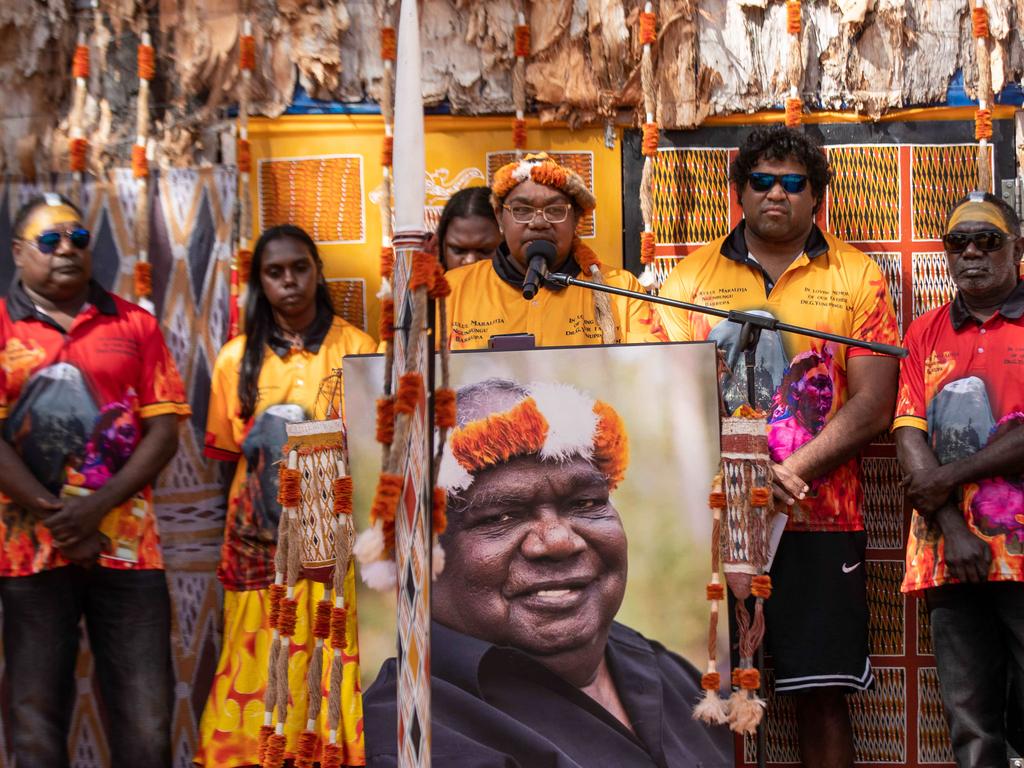
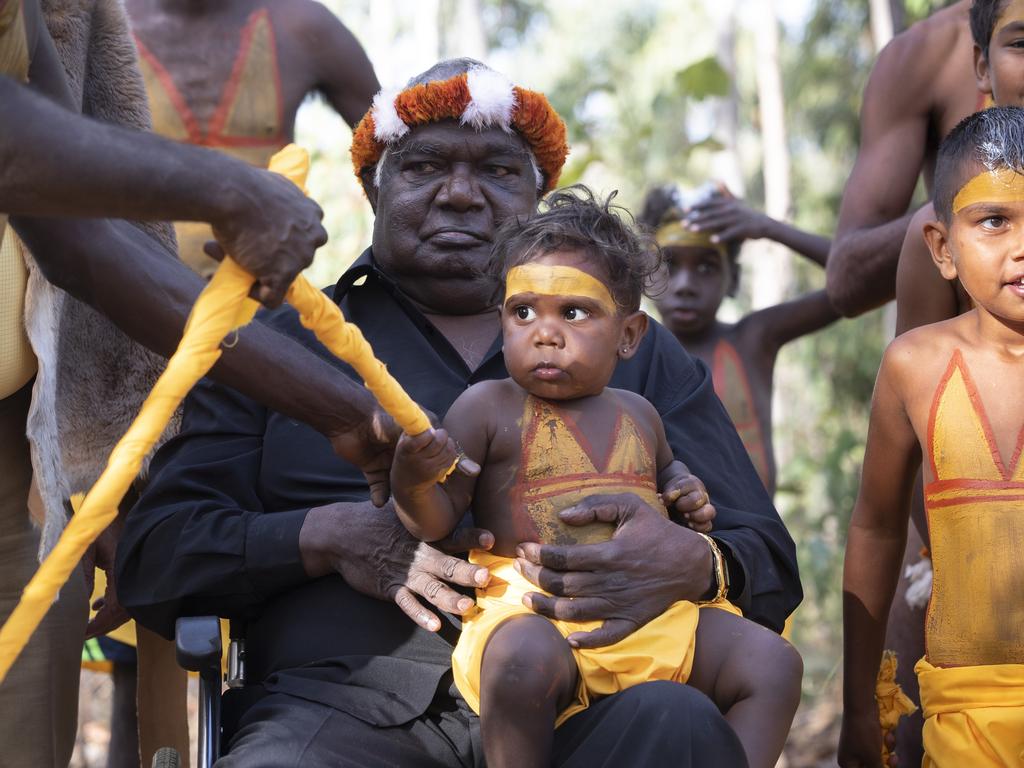
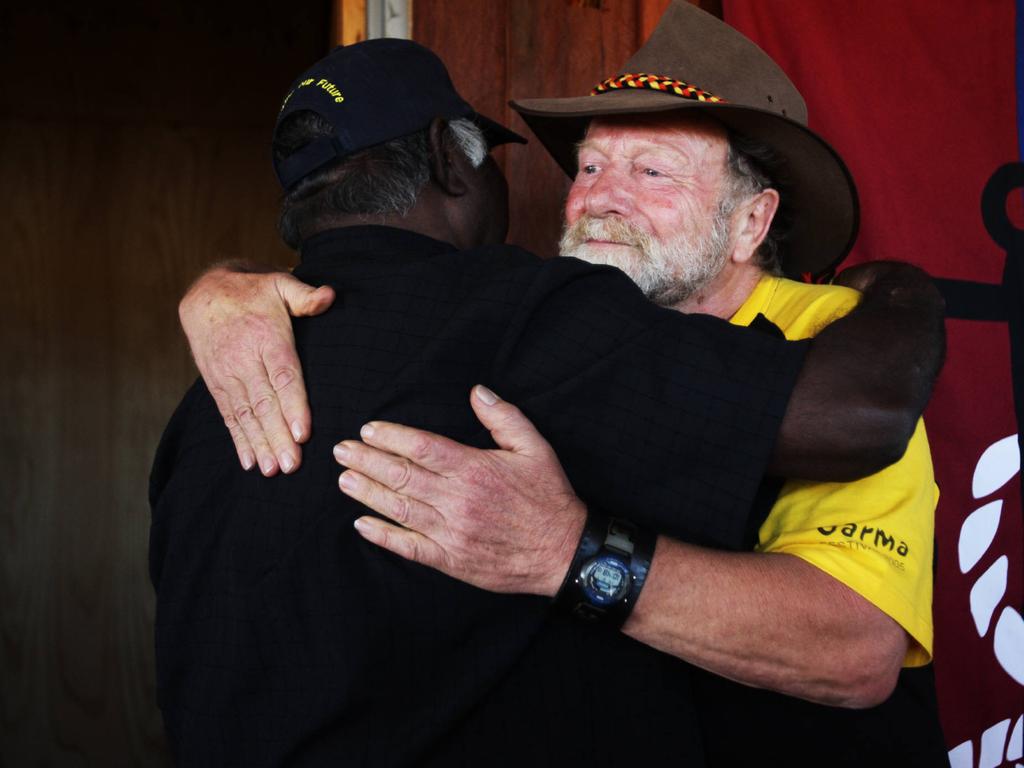
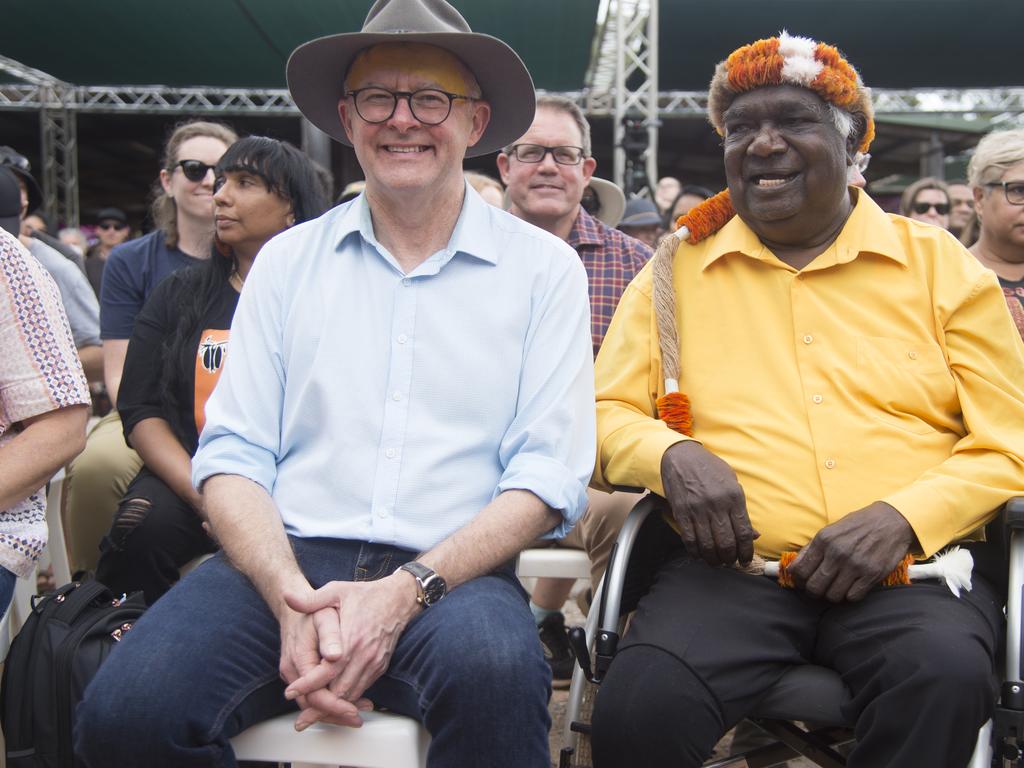


Yunupingu was born at DJAW-WUL-PA-WUY on June 30, 1948. His father was MUN-GU-RA-WUY and his mother was MA-KUR-NGOO of the Galpu clan. His backbone was the DHAL-WANG-OO nation, who are his grandfathers, and his skin name is GUTJUK.